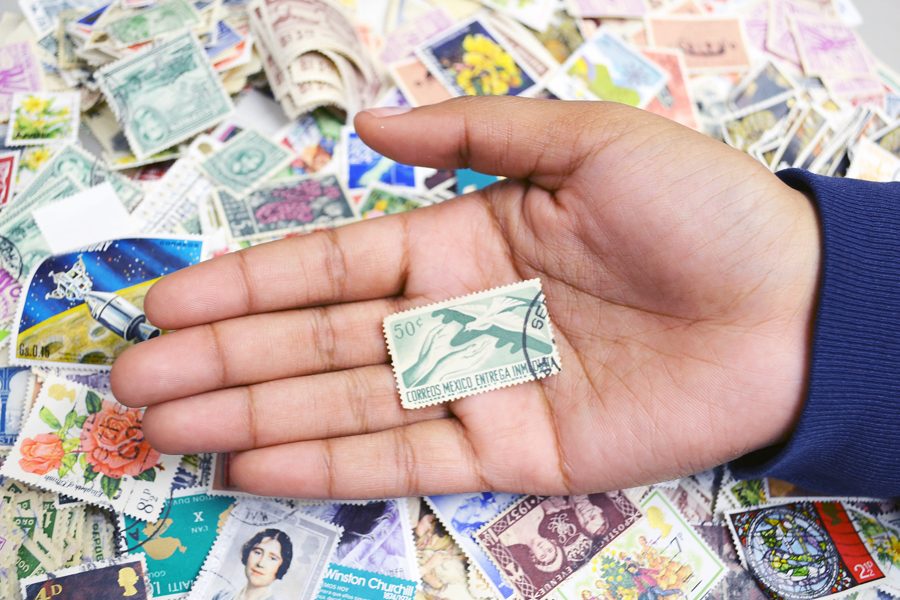Students at a Massachusetts school have completed a years-long mission to honor the lives lost during the Holocaust.
In 2009, a fifth-grade class at Foxborough Regional Charter School read “Number the Stars,” Lois Lowry’s book about a child’s experience surviving the Holocaust.
Moved by hearing what a child their age endured, the students decided to do something to remember the 11 million people who died: Collect one postage stamp for each life lost.
“Stamps are valuable, but once used, they’re discarded as worthless,” said Jamie Droste, a community service coordinator who leads the project. “We began to use this as an analogy — all those people were valuable, but were used and discarded.”
The Holocaust Stamp Project, which now includes all of the school’s K-12 students, surpassed its goal this year. In addition to using the stamps to create collages and other artwork, the project teaches the students life lessons on tolerance and respect for others.
“This project touches on our anti-bullying campaign,” Droste said. “Among those 11 million victims were those who were targeted because of their sexuality, mental health, political affiliation and genealogy.”
The stamps themselves came from a variety of sources, including donations from individual collectors worldwide, as well as organizations like the American Philatelic Society, which donated more than 1 million stamps.
Philatelists often help the school sort the stamps and sometimes help determine their value — an important task because some donations are rare issues from the 19th century.
Tarah Valin, a Foxborough senior who has been involved with the project since she was a fifth-grader, said she didn’t fully understand its meaning until last year, when a younger student asked about the bins where the stamps are kept.
“That right there is the beauty of the project,” Tarah said. “As long as people can ask, ‘What’s that?’ and there’s someone there who can answer, we as a community are doing our jobs to keep those 11 million souls alive.”

